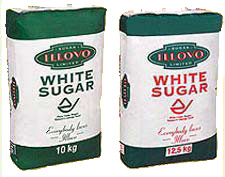Syndicates of illegal forex dealers are issuing receipts and stamps of known banking brands to their ‘clients’ to legitimise their dirty business, a Weekend Nation undercover investigation reveals.
By using what are apparently forged Authorised Dealer Banks’ (ADBs) authenticating documents, the syndicates are helping to externalise huge sums of forex from a country whose official import cover is currently less than one month against the internationally recommended three-month cushion.
It also deprives the formal forex market of the hard currency with which to import critical goods such as drugs and fuel, which are currently in short supply.
Dubious transaction
As part of the undercover investigation, Weekend Nation—after alerting the Malawi Police Service of the operation—went to the forex underworld of Blantyre on Monday this week and bought 300 South African rands (R300) from a vendor at the exchange rate of K38 to the rand.
We paid K11 400 and an additional K3 500 as processing fee.
The vendor told us to wait for 30 minutes because, according to him, he wanted to take the money and our passport to one of the banks within the city for the transaction.
After 40 minutes, he returned and produced R300 in cash backed by a Nedbank (Malawi) Limited receipt dated November 26 2012. The receipt has what looked like an official Nedbank stamp.
The value of the transaction on the receipt was exaggerated, showing R3 000 instead of the R300 that we asked for and got.
He also returned with our passport, which now also had a Nedbank stamp on page 45 of the travelling document where, according to inscribed order on it, “No entries to be made on this page except by a bank or authorised dealers.”
The receipt also had an account number 022000004236 for the applicant (our journalist) who has never held a Nedbank Malawi account.
The receipt also records the applicant’s address as P.O. Box 1642, Blantyre, which is not our journalist’s.
Another dubious detail on the receipt is the forged signature of the applicant. The signature is an imitation of the one in the passport.
After the vendor handed back the passport, receipt and the money, he offered advice: “When you are travelling and you are required to show the money you are carrying, just produce the passport and do not show the receipt. Tell them that you bought the money from the bank, in this case Nedbank.
“Tell them that you have already used part of the money you got from the bank to sort out a problem. If you show the receipt, they will force you to show all the money indicated there or pay a fine. I have helped many people in this way.”
Nedbank investigating the matter
When we took the receipt and passport to Nedbank (Malawi) Limited on Wednesday for validation, Nedbank’s marketing and business development manager Chimwemwe Khonje said the bank stamp and the signature on it are forged.
But he confirmed that the bank account on the receipt was once on their books but it was closed.
He added that given more time, the bank could trace the owner of the closed account used to facilitate the illicit foreign currency transaction with the black market dealer.
“We will engage relevant authorities to further investigate this matter and we will cooperate fully with this investigation. We will also conduct an internal investigation to ensure that any possible loopholes that might have aided this malpractice are sealed,” said Khonje.
Asked if the bank suspected a syndicate involving its employees, Khonje said: “We have no reason to suspect Nedbank staff at this point. However, given the gravity of the matter, a thorough investigation will be conducted to ensure that no Nedbank staff is involved in this malpractice.”
Khonje said it was the first time the bank had experienced such an incident.
“Nedbank strives to conform to all regulatory requirements as set by the Reserve Bank of Malawi. These include reporting any suspicious incidents involving illegal externalisation of forex. This is the first incident of forgery of bank receipts and stamps that has come to our attention,” he said.
Khonje said the operation had implications on forex reserves.
“This allows for externalisation of forex to appear legitimate when in fact the documentation authorising such externalisation is not authentic and not approved by the bank. Such a malpractice is a cause for concern for the entire country and no bank would want to be party to the illegal externalisation of our limited forex reserves that ought to be deployed to the nation’s development agenda,” he said.
Another dubious transaction
This one involved a Blantyre-based man who did not buy any forex from FDH Money Bureau Limited, but his passport contained a stamp from the bureau, showing that he bought $600 and another $400 on November 10 2010.
“I did not buy any forex but I wanted to have my passport stamped showing some money in it because I was travelling outside [the country],” the man said, showing us the document.
The man, who asked for anonymity but gave us a copy of page 45 of his passport where the forex stamp is, said he was aware that vendors on the black market either possess bank stamps or work with some bank employees to stamp passports indicating official forex transaction.
“There was a time somebody wanted $10 000 and he got it on the black market and had his passport stamped,” he said.
But like Nedbank, FDH Bank security manager Yohane Julio disowned the stamp, saying it does not have some features which are contained in the bank’s official stamp.
Julio said the development is not new to FDH Bank because this year alone, the bank has had two conmen arrested for possessing stamps.
“Last year, we had about 40 people arrested for buying forex on the black market from such people who used our bank stamp,” said Julio. “It is a syndicate and difficult to get to the real people with the stamps.”
Reserve Bank of Malawi (RBM) spokesperson Ralph Tseka said on Thursday illegally using bank stamps to transact forex is fraud and challenged police to bring to book the culprits.
National Police spokesperson Rhoda Manjolo said on Friday police arrest people who illegally buy forex with their passports having been stamped, but she was quick to add that the police have been unable to trace the people issuing the stamps.
She said she needed time to compile a national figure of those arrested.
Efforts to talk to Bankers Association of Malawi and the Financial Intelligence Unit (FIU) proved futile as they did not respond to e-mails sent to them on Wednesday this week.
Recently, a Weekend Nation expose showed that most banks are not strictly adhering to the Money Laundering, Proceeds of Serious Crimes and Terrorist Financing Act by, among other things, failing to report suspicious transactions to the FIU.
Bank-aided money laundering has become so serious that an August 2012 meeting of leading institutions in the money laundering fight resolved to start prosecuting bank executives or concerned banks themselves to show how far government is ready to go to deal with bad behaviour in the financial industry.

.jpeg&w=60&q=100&h=60)




.jpeg&w=60&q=100&h=60)





